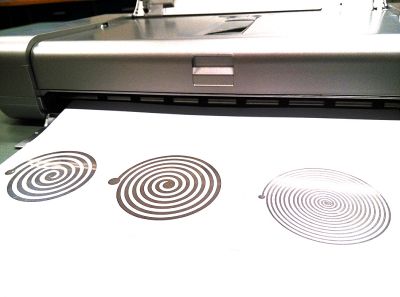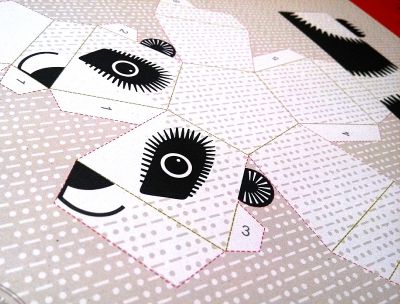No edit summary |
|||
| Line 75: | Line 75: | ||
Printed Electronics: | Printed Electronics: | ||
* Suganuma, Katsuaki: Introduction to Printed Electronics. New York: Springer Science+Business Media, 2014. <br />ISBN 978-1-4614-9624-3 (Print) ISBN 978-1-4614-9625-0 (Online) | * Suganuma, Katsuaki: Introduction to Printed Electronics. New York: Springer Science+Business Media, 2014. <br />ISBN 978-1-4614-9624-3 (Print) ISBN 978-1-4614-9625-0 (Online) | ||
<br>(E-Book accessible via the link in the catalogue of the university library) | |||
* Nan-Wei Gong, Jürgen Steimle, Simon Olberding, Steve Hodges, Nicholas Gillian, Yoshihiro Kawahara, and Joseph A. Paradiso: PrintSense: A Versatile Sensing Technique to Support Multimodal Flexible Surface Interaction. CHI 2014 Toronto: ACM, 2014. | * Nan-Wei Gong, Jürgen Steimle, Simon Olberding, Steve Hodges, Nicholas Gillian, Yoshihiro Kawahara, and Joseph A. Paradiso: PrintSense: A Versatile Sensing Technique to Support Multimodal Flexible Surface Interaction. CHI 2014 Toronto: ACM, 2014. | ||
Revision as of 11:50, 26 October 2016
Fachmodul, Werkmodul
Title: Printed Electronics: Electro-Papercraft
Lecturer: Florian Wittig
Credits/SWS: 6 ECTS, 2 SWS
Maximum Number of Participants: 15
Course Language: English
First meeting: October 18, 13:30, Marienstraße 7b, Room 103
Date: Tuesdays, 13:30 until 15:00 h
Venue: Marienstraße 7b, Rooms 103 and 002
Description
Equipped with an inkjet printer and conductive ink, we will first take a look at the basic qualities of printed electronics, the digital printing method, as well as characteristics of different types of paper. We will experiment with the possibilities of printed circuits with an inkjet printer and will combine printed touch sensors, potentiometers, or loud speakers with electronic components. Using different folding techniques such as Origami and papercraft, the students will design little 3D paper objects making use of printed electric circuits.
Kursinhalt
Ausgerüstet mit Inkjetdrucker und leitfähiger Tinte beschäftigen wir uns zunächst mit den Anwendungsmöglichkeiten und Eigenschaften von gedruckter Elektronik, dem Digitaldruckverfahren und dem Werkstoff Papier. Wir testen die Möglichkeiten von gedruckter Elektronik mit Inkjet und werden Touchensoren, Potentiometer oder Lautsprecher drucken und mit elektronischen Bauteilen kombinieren. Inspiriert von verschiedenen Falttechniken, Origami und Papercraft, konzipieren die Studierenden kleine 3D-Papierobjekte, die wir mit gedruckten Leiterbahnen versehen.
Admission requirements / Voraussetzung zur Teilnahme an der Veranstaltung
This is an introductory course with no technical pre-requisites. Basic knowledge regarding microcontrollers and electronics components is helpful. Concurrent enrollment in other IFD courses offering is strongly encouraged.
Registration procedure / Anmeldung
Please send your application by email with the Subject Printed Electronics Inkjet to: florian.wittig (at) uni-weimar.de
- Name, Surname
- program and semester (Studienprogramm und Fachsemester)
- matriculation number (Matrikelnummer)
- Valid email address @uni-weimar.de (no other mailing addresses will be accepted) Why?
- Short sentence on why you want to participate in this course.
Evaluation / Geforderte Prüfungsleistung zur Erlangung eines Leistungsnachweises
Active participation, planning & fabricating a paper object containing printed electronics, documentation.
Eligible participants / Zielgruppe
Graduates enrolled in the Faculties of Media, Art and Design, and in the MediaArchitecture program.
Open to students of other departments, please ask the staff at your department wether the credit points can be taken into account.
Syllabus
Together we will hold working sessions as well as introductory lectures to the following topics:
Printed Electronics, Digital Printing, Paper Types, Papercraft.
Below are the lecture dates:
October 18 - Introduction
October 25 - Introduction to Printed Electronics: History, current status, advantages & disadvantages, possibilities
November 1
November 8
November 15
November 22
November 29 - Midterm Presentations
December 6
December 13
January 3
January 10
January 18
January 24
January 31 - Final Presentations
Literature
Printed Electronics:
- Suganuma, Katsuaki: Introduction to Printed Electronics. New York: Springer Science+Business Media, 2014.
ISBN 978-1-4614-9624-3 (Print) ISBN 978-1-4614-9625-0 (Online)
(E-Book accessible via the link in the catalogue of the university library)
- Nan-Wei Gong, Jürgen Steimle, Simon Olberding, Steve Hodges, Nicholas Gillian, Yoshihiro Kawahara, and Joseph A. Paradiso: PrintSense: A Versatile Sensing Technique to Support Multimodal Flexible Surface Interaction. CHI 2014 Toronto: ACM, 2014.
Digital Prining:
- Kipphan, Helmut (ed.): Handbook of Print Media: Technologies and Production Methods. Heidelberg: Springer Verlag, 2001.
ISBN 978-3540673262
Papercraft:
- Jackson, Paul: Vom Faltobjekt zum Werbeträger : Schneide- und Falttechniken im Papierdesign. Bern: Haupt Verlag, 2013.
ISBN 978-3-258-60070-3 (more releases by Paul Jackson available in the University Library) - Klanten, Robert (ed.): Papercraft : design and art with paper. Berlin: Die Gestalten Verlag, 2009.
ISBN 978-3-89955-251-5 (check out part 2 as well) - Avella, Natalie: Paper Engineering : Papier als 3D-Werkstoff. München: Stiebner, 2004.
ISBN 978-3-8307-1292-3
Links
- Up to date information in the course's page on the MediaWiki: http://www.uni-weimar.de/medien/wiki/IFD:Printed_Electronics_Inkjet,

